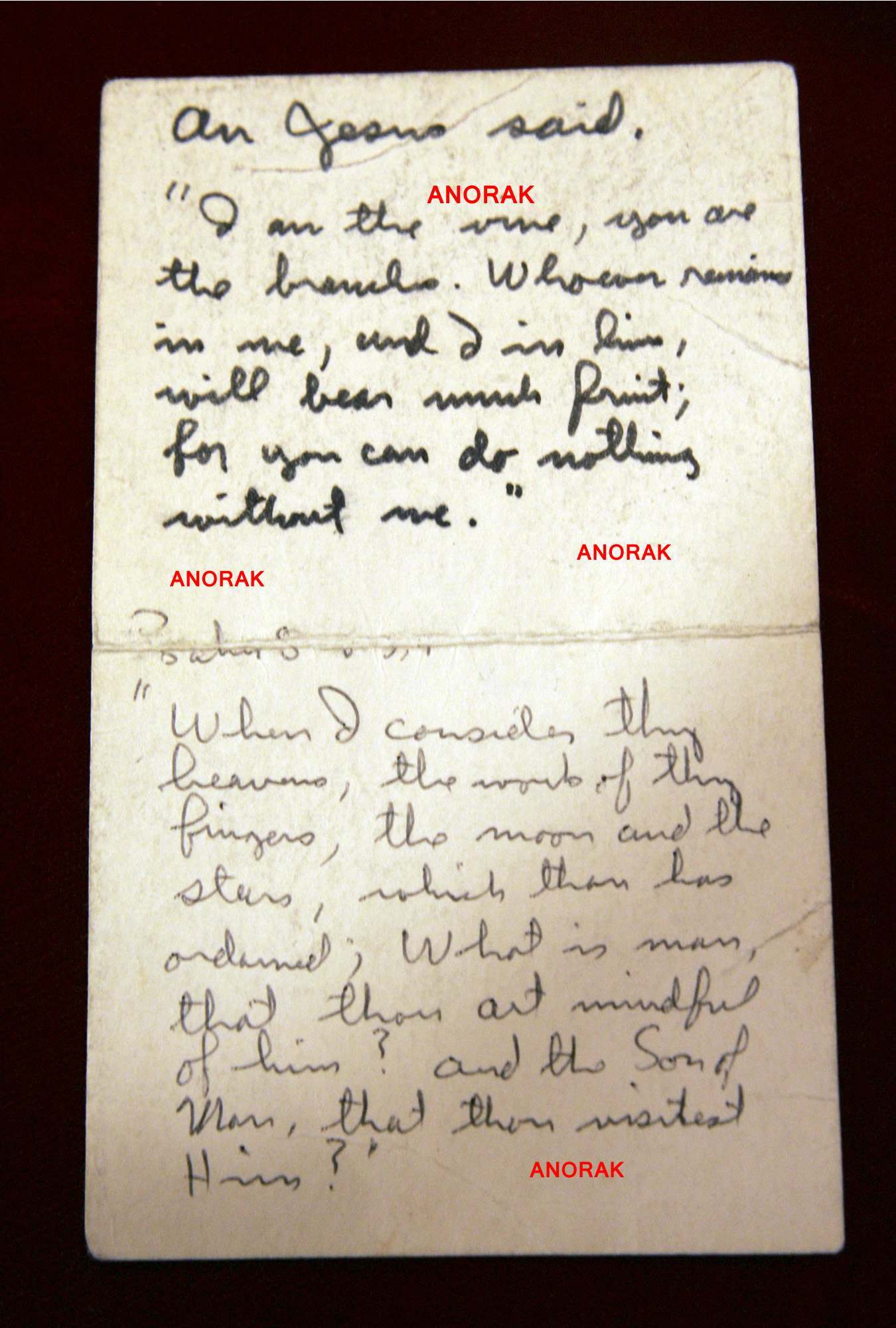JUNE 21 1969: Apollo 11 astronaut Buzz Aldrin walked on the moon, 19 minutes after Neil Armstrong stepped out of the Apollo 11 capsule.
Aldrin writes in his book, Magnificent Desolation how in the hours between the moon landing and Armstrong stepping outside, he took Communion.
Landing on the moon is not quite the same thing as arriving at Grandmother’s for Thanksgiving. You don’t hop out of the lunar module the moment the engine stops and yell, ‘We’re here!’”…
I had originally asked Dean Woodruff, pastor at Webster Presbyterian Church, where my family and I attended services when I was home in Houston, to help me come up with something I could do on the moon, some appropriate symbolic act regarding the universality of seeking. I had thought in terms of doing something patriotic, but everything we came up with sounded trite and jingoistic. I settled on a well-known expression of spirituality: celebrating the first Christian communion on the moon, much as Christopher Columbus and other explorers had done when they first landed in their ‘new world.’
I wanted to do something positive for the world, so the spiritual aspect appealed greatly to me, but NASA was still smarting from a lawsuit filed by atheist Madalyn Murray O’Hair after the Apollo 8 astronauts read from the biblical creation account in Genesis. …
So, during those first hours on the moon, before the planned eating and rest periods, I reached into my personal preference kit and pulled out the communion elements along with a three-by-five card on which I had written the words of Jesus: “I am the vine, you are the branches. Whoever remains in me, and I in him, will bear much fruit, for you can do nothing without me.” I poured a thimbleful of wine from a sealed plastic container into a small chalice and waited for the wine to settle down as it swirled in the one-sixth earth gravity of the moon. My comments to the world were inclusive: “I would like to request a few moments of silence … and to invite each person listening in, wherever and whomever they may be, to pause for a moment and contemplate the events of the past few hours, and to give thanks in his or her own way.” I silently read the Bible passage as I partook of the wafer and the wine, and offered a private prayer for the task at hand and the opportunity I have been given. …
Perhaps, if I had it to do over again, I would not choose to celebrate communion. Although it was a deeply meaningful experience for me, it was a Christian sacrament, and we had come to the moon in the name of all mankind — be they Christians, Jews, Muslims, animists, agnostics or atheists. But at the time, I could think of no better way to acknowledge the enormity of the Apollo 11 experience than by giving thanks to God. it was my hope that people would keep the whole event in their minds and see, beyond minor details and technical achievements, a deeper meaning — a challenge, and the human need to explore whatever is above us, below us, or out there.
Aldrin wrote in Guideposts magazine in 1970:
“I opened the little plastic packages which contained the bread and the wine. I poured the wine into the chalice our church had given me. In the one-sixth gravity of the moon, the wine slowly curled and gracefully came up the side of the cup. Then I read the Scripture, ‘I am the vine, you are the branches. Whosoever abides in me will bring forth much fruit.’
“I ate the tiny Host and swallowed the wine. I gave thanks for the intelligence and spirit that had brought two young pilots to the Sea of Tranquility. It was interesting for me to think: the very first liquid ever poured on the moon, and the very first food eaten there, were the communion elements.”
The reading was never broadcast. Aldrin radioed Houston:
“Houston This is Eagle The LM Pilot speaking. I would like to request a few moments of silence. Over. I would like to invite each person listening in, wherever and whomever he may be, to contemplate for a moment the events of the past few hours and to give thanks in his own individual way.”
Aldrin planned to read, John 15:5. He later read Psalms 8:3-4:
“‘When I consider thy heavens, the work of thy fingers, the moon and the stars, which thou has ordained; What is man that thou art mindful of him? And the Son of Man, that thou visitest Him?'”
Would you like to support Flashbak?
Please consider making a donation to our site. We don't want to rely on ads to bring you the best of visual culture. You can also support us by signing up to our Mailing List. And you can also follow us on Facebook, Instagram and Twitter. For great art and culture delivered to your door, visit our shop.







